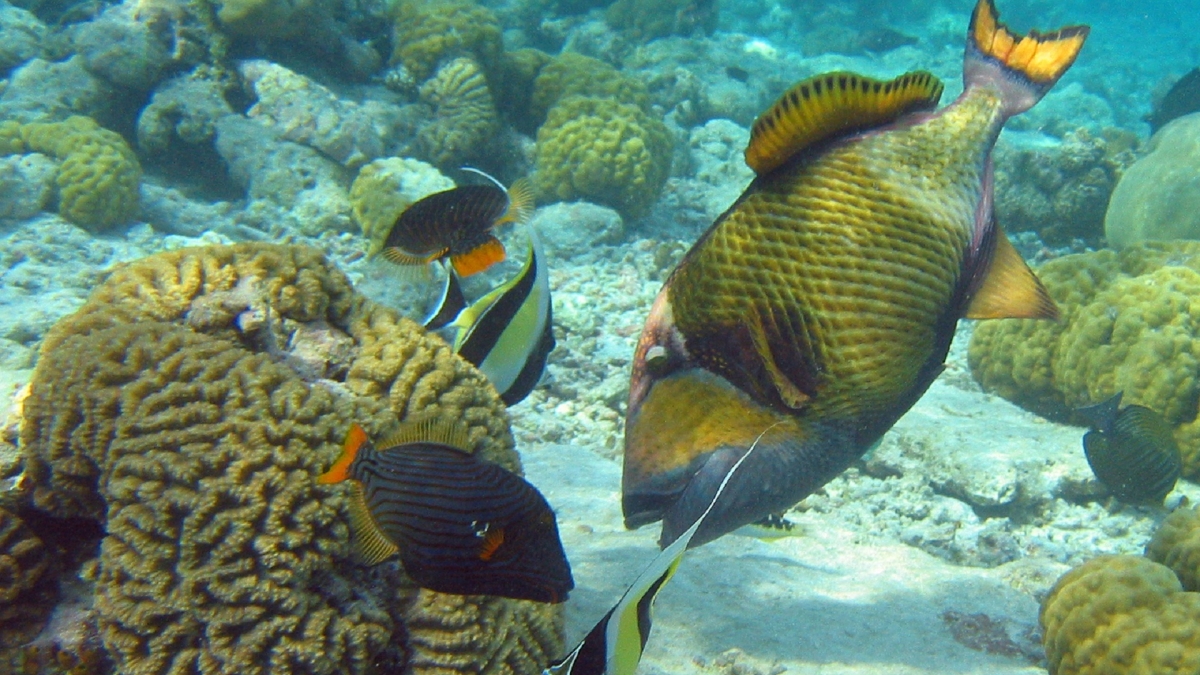Greg Asner and Robin Martin, both scientists at the Carnegie Institution for Science in Washington, D.C., will join Arizona State University's faculty in January 2019.
Asner will establish and lead the ASU Center for Global Discovery and Conservation Science, which has the goal of translating science into solutions.
Martin will be an associate professor in the School of Geographical Sciences and Urban Planning.
Greg Asner
Asner and his colleagues have developed and implemented pioneering airborne mapping techniques, which reveal the functional diversity and vulnerabilities of various ecosystems and identify targets for conservation. The chemical variation detected by an airborne instrument suite is linked to a database of dried and cryogenically frozen fieldwork specimens.
Asner and Martin's latest venture is the development of a novel coral reef monitoring and alert system as part of a larger coral reef mapping project.
“I am so excited to join the ASU family of innovators," Asner said. "I’m especially thrilled to create and grow a new center of applied research that focuses on increasing the impact of new science and technology to generate solutions for a more sustainable future."
Asner’s appointment will be split between the School of Geographical Sciences and Urban Planning and the School of Earth and Space Exploration. Asner has a bachelor’s degree in engineering from the University of Colorado, Boulder as well as a master’s degree in geography and doctoral degree in biology from the University of Colorado.
Robin Martin
He was elected to the U.S. National Academy of Sciences in 2013. He was named a Fellow of the American Geophysical Union in 2015, and of the Ecological Society of America in 2016.
Martin’s research focuses on field and laboratory studies of trees and corals with aircraft- and satellite-based maps. She aims to understand biodiversity and health of forests and reefs.
She has a bachelor’s degree in population and organismic biology from the University of Colorado, a master’s degree in rangeland ecosystem science from Colorado State University, and a doctoral degree in biochemistry and remote sensing from the University of Colorado.
More Science and technology

ASU to host 2 new 51 Pegasi b Fellows, cementing leadership in exoplanet research
Arizona State University continues its rapid rise in planetary astronomy, welcoming two new 51 Pegasi b Fellows to its exoplanet research team in fall 2025. The Heising-Simons Foundation awarded the…

ASU students win big at homeland security design challenge
By Cynthia GerberArizona State University students took home five prizes — including two first-place victories — from this year’s Designing Actionable Solutions for a Secure Homeland student design…

Swarm science: Oral bacteria move in waves to spread and survive
Swarming behaviors appear everywhere in nature — from schools of fish darting in synchrony to locusts sweeping across landscapes in coordinated waves. On winter evenings, just before dusk, hundreds…




